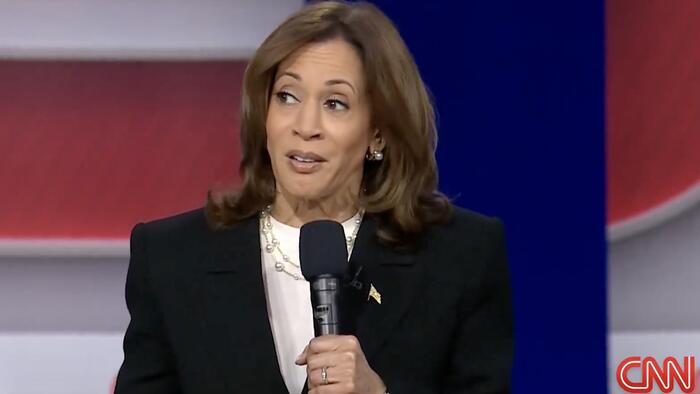Kamala Harris’s recent town hall meeting on CNN highlighted her increasing vulnerability as she trails Donald Trump in battleground states. Under pressure to engage more actively with voters, the event appeared to backfire, revealing Harris as a politician perceived as superficial and disconnected from everyday realities. Critics on social media, including seasoned political commentators, emphasized her lack of authenticity and inability to communicate effectively, suggesting she lives in a “liberal bubble” devoid of genuine interaction. This perception exacerbates Harris’s challenges as she prepares for the upcoming election, with expectations that her poll numbers will only dip further following this event.
The town hall, held in Delaware County—a crucial area in Pennsylvania—was aimed at reaching undecided voters. However, the New York Times noted that Harris’s responses were often evasive, failing to directly address the concerns posed by attendees. CNN’s Dana Bash remarked that it remained unclear if Harris succeeded in making a meaningful connection with voters. Observations from seasoned Democrats indicated a growing concern surrounding her ineffective communication, particularly when faced with challenging questions that required straightforward answers. These encounters highlighted a significant gap in her ability to engage authentically with the electorate.
One particularly notable interaction occurred when Anderson Cooper confronted Harris about her changing stance on border security. He pointed out her previous criticisms of Donald Trump’s border wall, framing the contradiction between her past statements and her current endorsement of funding for a wall as an example of her indecision and evasiveness. As Harris struggled to offer a clear answer, it became evident that her attempts to inject humor into the discussion fell flat, resulting in an unresponsive audience. This moment underscored her difficulties in addressing tough topics while maintaining composure and appealing to voters.
As the town hall continued, it was apparent that Harris’s attempts at self-deprecation and humor did not resonate. At one point, her response to a question about personal weaknesses was humorously likened to an infamous scene from “The Office,” suggesting an inadequacy in presenting a relatable image. After the event, CNN’s panel—including both liberal and conservative commentators—expressed discontent with her performance, criticizing her tendency toward vague, circuitous answers. Even figures like Van Jones voiced frustration with her communication style, while conservative commentator Scott Jennings offered a stark assessment of her inability to communicate effectively under pressure.
In anticipation of the event, CNN billed it as an opportunity for undecided voters to pose questions. However, skepticism arose about the authenticity of one questioner—a political science professor from Swarthmore College—questioning her status as an undecided voter given her deep ties to the Democratic Party. This raised concerns about the town hall’s design and the genuine representation of undecided voters, feeding into the narrative of Harris as out of touch with a broader electorate.
Ultimately, the town hall served to reiterate the narrative surrounding Kamala Harris as a candidate struggling with authenticity and connection. The feedback received—from both commentators and audience members—underscored a potential crisis of credibility as she seeks to overcome the challenges posed by her public perceptions in the lead-up to the election. With mounting evidence that she is failing to resonate with the electorate, Harris’s performance suggests she may need to reevaluate her approach to engage more deeply and effectively with voters in battleground states if she aims to improve her standings moving forward.

